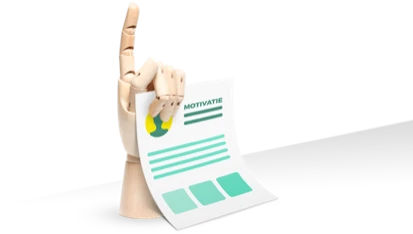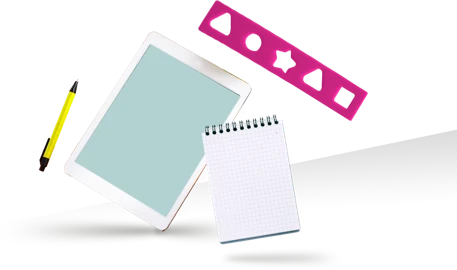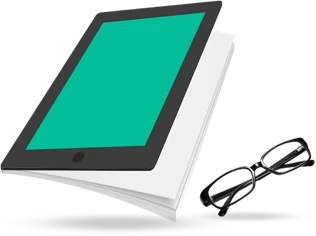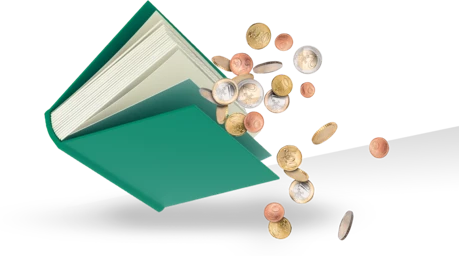
Over de opleiding Open dag: 13 maart

How can you develop innovative medical devices that improve patient care? How do you combine engineering with biology to advance health technology? If you want to solve real-world challenges in medical technology, the Master's degree in Biomedical Engineering (BME) at the University of Groningen is the perfect fit.What to expect from the MSc programme Biomedical Engineering✔ Gain expertise in medical imaging, implants, tissue engineering, and rehabilitation technology✔ Work at the intersection of microelectronics, IT, mechanics, and biology✔ Collaborate in multidisciplinary teams with doctors, engineers, and biologists✔ Embedded within the University Medical Center Groningen (UMCG) with access to cutting-edge facilitiesIn this Master’s programme, you will dive deep into topics such as imaging techniques, physiological control engineering, implant design, infection prevention, and medical ethics. You’ll develop a broad understanding of medical and biological sciences, preparing you to design the next generation of health technologies. This English-taught programme offers a unique blend of engineering and medical expertise, with a strong focus on practical applications in collaborati...
Keuzes binnen de opleiding
-
This track is concerned with the design, development, analysis, assessment and application of innovative biomaterials for body function restoration and enhancement of implant efficacy. Biomaterials are increasingly used in modern medical practice to realize solid implants such as metals, polymers, but also hydrogels and soft and porous materials used in e.g. orthopedics, dentistry/orthodontics, ophthalmology, cardio-vascular medicine and in scaffolds for tissue engineering. The BSE track focuses on biomaterial innovations (including manufacturing) and application of existing biomaterials for the use as scaffolds, coatings, micro- and nano-sized particles that enables efficient antimicrobial or therapeutic drug delivery, lubrication, diagnosis and tissue engineering, tissue models, organs-on-a-chip. A particular focus is on how medical materials behave inside the body, how microorganisms and mammalian cells/tissue cells interact with the materials, and how we can utilize and direct these interactions to enhance medical treatments The track BSE focuses on the joined venture of materials, biology, and medicine and can be divided into three themes: The first focus is on the characteristics and application of biomaterials in modern medicine (Biomaterials 2). Special emphasis is given on the physico-chemical surface characteristics (Surface Characterisation) and the related lubrica
Kennismaken met deze afstudeerrichting?
-
The track Medical Device Design deals with the design of innovative Medical Devices that will contribute to prevention of health decline, to better diagnostics and to better therapy. Medical devices are more and more key in improvement of health care quality, but also in realizing a sustainable health care in terms of money and manpower. For prevention of health decline, sensor systems will be designed to allow citizens to self-monitor their health condition (e.g. their stress and sleep condition); intervention systems can be designed to improve the condition of citizens (e.g. via a balance and muscle-strength trainer). ICT plays an important role in gathering and processing sensor data and advising the best interventions for an individual using self-learning decision support systems. For improved diagnostics, innovative diagnostic instruments will be designed that are smaller, faster, more accurate, or cheaper. New technologies will be applied that make entire new instrumentation possible. For improved therapy new or improved implants (e.g. bone plates), artificial organs (e.g. heart assist pump) and prostheses (e.g. exoskeletons) will be designed. In the MDD track, the focus lies on three themes: The first focus lies on the design of implants and artificial organs. During the courses Interface Biology and Biomaterials 2 the student gets familiar with biomaterials, and how
Kennismaken met deze afstudeerrichting?
-
In the track Medical Imaging the student learns the underlying principles and the instrumentation used in current diagnostic imaging and therapy.
There are three themes where this track DII focuses on:
The first focus is Radiology. The discipline of radiology focusses on the medical specialty that aims to obtain diagnostic information by imaging techniques and treatment of patients by using minimal invasive procedures under image guidance. Apart from imaging techniques that use ionizing radiation (computed tomography, radiography, angiography, mammography), also ultrasound and magnetic resonance imaging can be used. The physical principles will be taught during the master, and during projects you will be able to work together with medical physicist on the optimization of these techniques in order to improve patient comfort and care. Dedicated courses are: Magnetic Resonance Physics, Conventional X-ray Imaging and Ultrasound, and Computed Tomography.
The second focus lies on Nuclear Medicine. This is the medical specialty that performs diagnosis and therapy using radioactive substances administered to a patient. During radioactive decay, radiation is emitted which can be measured outside the body. This enables the assessment of the 3D-distribution of the so-called radiotracers in the body, if necessary as a function of time. The strength of nuclear medicine is that this distr
Kennismaken met deze afstudeerrichting?
Op Studiekeuze123 kun je informatie vergelijken. Op de website van de onderwijsinstelling kun je verder lezen als de opleiding je aanspreekt.
Bekijk instellingswebsiteBekostiging: Overheid
Studiepunten: 120 ECTS
Toelating & selectie € 2.694 wettelijk collegegeld in 2026 / 2027

Om toegelaten te worden tot een opleiding moet je aan bepaalde eisen voldoen.

Toelatingseisen
Om aan een master te kunnen starten, heb je een bachelordiploma nodig.
Sluit je bachelor niet direct aan op de master, of stroom je door van hbo naar wo? Dan moet je meestal een schakelprogramma of premaster volgen. Lees meer over schakelprogramma’s (Schakelprogramma, is dat nodig? - Studiekeuze123)
Collegegelden
Wettelijk collegegeld
Wettelijk collegegeld
Wettelijk of instellingscollegegeld?
Heb je recht op het wettelijk collegegeld of betaal je het instellingscollegegeld? Gebruik onze Collegegeldwijzer
Hoe hoog is het instellingscollegegeld? Bekijk het op de website van de universiteit
Meer weten?
Belangrijke data

Mis geen belangrijke gebeurtenissen. Check belangrijke data ook bij de opleiding zelf.

-
13
maart 2026
Open dag / avond
Meer open dagen -
1
mei 2026
Aanmelddeadline opleiding -
1
september 2026
Start opleiding
Alle startmomenten
Tijdens de opleiding 46 eerstejaars

Geen enkele opleiding is hetzelfde. Kijk daarom naar de kenmerken van een opleiding.

Studeren bij deze instelling
Studieadvies
We hebben onvoldoende betrouwbare informatie over dit onderwerp.
Studieverloop
Diploma binnen 3 jaar
Meer weten?
Tevredenheid 3.8/5.0 algemene tevredenheid

Hoe beoordelen de (oud)studenten deze opleiding?

Nationale Studenten Enquête
Hoe tevreden waren studenten in 2025 over aspecten van deze opleiding?
|
Deze opleiding
Rijksuniversiteit Groningen |
Landelijk gemiddelde
Biomedical Engineering Vergelijk alle 4 opleidingen |
verschil | |
|---|---|---|---|
|
Studenttevredenheid
Meer informatie | 3.8 / 5 | 3.9 / 5 | |
| Sfeer | 4.2 / 5 | 4.2 / 5 | |
| Studiefaciliteiten | 4.1 / 5 | 4.2 / 5 | |
| Studie opnieuw kiezen | 3.8 / 5 | 4.0 / 5 | |
| Inhoud en opzet | 3.5 / 5 | 3.9 / 5 | |
| Aansluiting beroepspraktijk | 3.4 / 5 | 3.3 / 5 | |
|
Studenttevredenheid
Meer informatie | 3.8 / 5 | 3.9 / 5 | |
| Sfeer | 4.2 / 5 | 4.2 / 5 | |
| Studiefaciliteiten | 4.1 / 5 | 4.2 / 5 | |
| Studie opnieuw kiezen | 3.8 / 5 | 4.0 / 5 | |
| Inhoud en opzet | 3.5 / 5 | 3.9 / 5 | |
| Aansluiting beroepspraktijk | 3.4 / 5 | 3.3 / 5 | |
| Docenten | 3.8 / 5 | 3.9 / 5 | |
| Lesstof in het Engels | 3.9 / 5 | 4.2 / 5 | |
| Studiebegeleiding | 3.8 / 5 | 4.1 / 5 | |
| Toetsing en beoordeling | 3.6 / 5 | 3.8 / 5 | |
| Betrokkenheid en contact | 3.9 / 5 | 4.0 / 5 | |
| Studiedruk |
Oordeel afgestudeerden
Over de studie Biomedical Engineering
Studeren met een ondersteuningsbehoefte
Veel studenten hebben tijdens hun studie behoefte aan extra voorzieningen of flexibiliteit in het onderwijs. Dit kan komen door een aandoening zoals dyslexie, een chronische ziekte, psychische klachten, maar ook topsport of ondernemerschap tijdens de studie. Studenten beoordeelden hoe tevreden ze zijn over de ondersteuningsmogelijkheden bij hun onderwijsinstelling.
Na afstuderen 72% van de werkenden vond een baan op niveau

Lees hoe het studenten van deze opleiding in de eerste periode na hun studie vergaat op de arbeidsmarkt.

Meest gekozen beroepen (na deze studie)
| Professoren en andere onderwijsgevenden in het hoger onderwijs | 48% |
| Biologen, botanici, zoölogen e.d. | 6% |
| Medisch specialisten | 4% |
| Bedrijfs- en organisatieanalisten | 3% |
| Softwareontwikkelaars | 3% |
Werkgelegenheid na deze studie
Bij deze studie zijn de verwachtingen voor het vinden van een baan goed.
Een (substantiële) baan vinden...
duurt gemiddeld 5 maanden.29% krijgt een vast contract.
Match tussen studie en beroep
84% vond een baan binnen het vakgebied van de studie
72% vond een baan op het niveau van de studie
Startsalaris
Het startsalaris na deze studie is lager dan het gemiddelde van alle wo master studies.
€ 3.000
Geschatte startsalaris na deze studie
€ 3.150
Geschat van alle wo master studies
Gemiddelde werkweek
Hoeveel uur afgestudeerden gemiddeld werken bij hun huidige baan.
37 uur
Het percentage zelfstandigen
We hebben onvoldoende betrouwbare informatie over dit onderwerp.
Contact Contact 050-3638100

Meer weten over de opleiding? Neem contact op met Rijksuniversiteit Groningen


Meer informatie
Bezoek ook de website van Rijksuniversiteit Groningen
Bezoek website van Rijksuniversiteit Groningen


